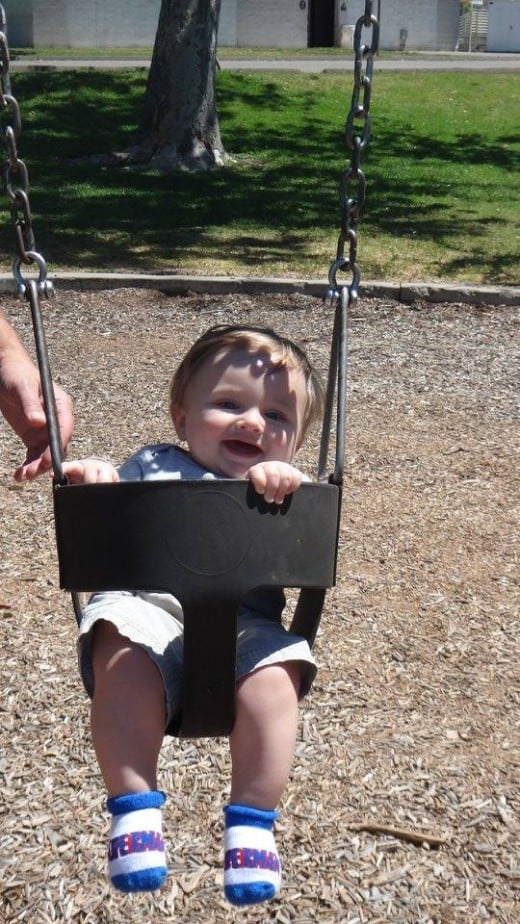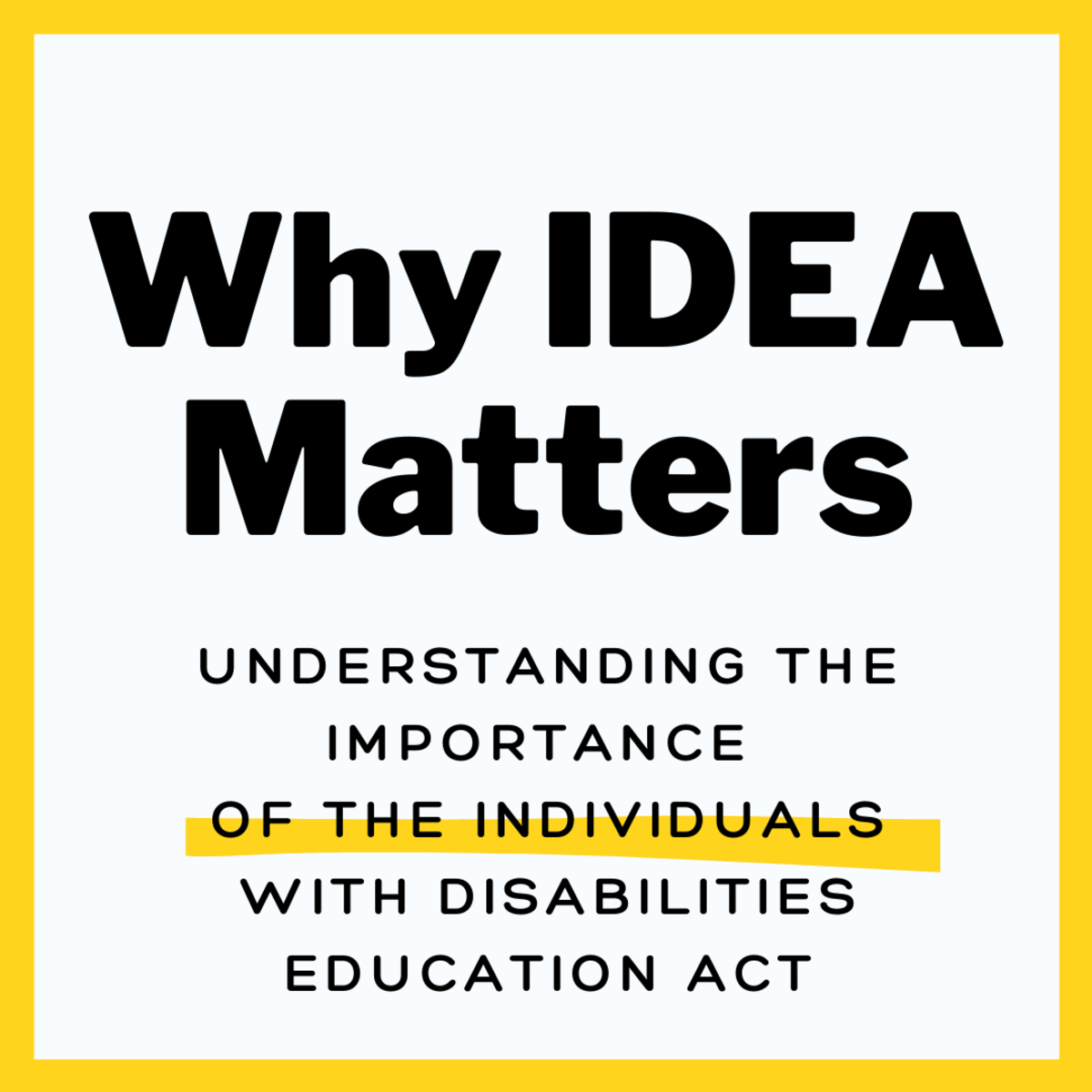Free Evaluations, Services When You Think Something's Wrong With Your Baby
My son craves every type of sensory input. At ten months, the higher he went, the louder the laughter.

When you can't afford your toddler's therapy for development delay or disability, there is help a phone call away.
I have a hunch there are millions of parents, like myself, who are grateful that their children receive free well-baby exams and immunizations. This is Obamacare, also known as The Affordable Care Act. If these visits were not free, my insurance would require $50 co-pays for each visit, plus a 20% coinsurance and a $250 deductible. This would not be affordable for us.
If there are any problems identified at well-baby visits, in the early stages of development—like not hitting milestones on time, a suspected disability or a confirmed disability—the services or therapies your child needs are not free like the well-baby visits. Those insurance deductibles apply, as do the co-pays and coinsurance.
Many insurance companies put a cap on the number of visits allowed per year for certain services your baby or toddler may need when diagnosed with a disability or developmental delay…the services your toddler needs the most: physical therapy; occupational therapy; speech therapy. When those visits are exhausted, you then become a cash-pay patient.
Additionally, parents who do not have insurance and suspect that their baby or toddler has a development delay or disability, the cash price for services are completely outrageous.
Whichever box you're in, this is an agonizing dilemma. How do you help your child when you do not have unlimited funds?
With my particular circumstance, I mentioned to my son's pediatrician on numerous occasions that there was absolutely no way I could pay for occupational therapy three times a week for my son who had oral texture aversion and could not eat solid foods. We were looking at $200-plus a week for these services. I now know that the pediatrician should have referred me to California's Early Start Program, where it would be possible to have my son receive free services due to our low income and high-cost insurance plan.
There were other concerns about my son's development that were ignored by the pediatrician. My concerns were often met with silence. I was also told that boys were slower at development than girls. I was often treated like an over-reacting, first-time Mom who clearly did not know how to take care of her child.
Do not accept these responses from your child's doctor. Take matters into your own hands. If you suspect your baby or toddler is developing slowly or you do not have the money to pay for therapy when your baby/toddler has a developmental delay or has been diagnosed with a disability, you do not need your doctor's referral to have your child evaluated for free by the state in which you reside and/or qualify for free or low-cost services and therapies which your child requires in order to thrive.
States will pay for all or part of the therapy your child needs when diagnosed with a disability or developmental delay.
Your child has rights under Part C of The Individuals with Disabilities Education Act (IDEA), a federal law that provides assistance to children from birth to three years of age with a disability and/or developmental delay in any of the following areas: cognition; communication; self-help; motor; social; emotional; physical development.
Funding is provided by the U.S. Department of Education and then allocated to each state. Each state administers its own program, so rules are different in every state (as far as how far behind in any developmental area your child must be, in order to qualify for services). Evaluations to determine if your child qualifies for services are always free, regardless of where you live, and can be performed in your home.
If your baby or toddler has already been diagnosed with a disability, the state evaluation is skipped.
If your baby/toddler is determined to be eligible for early intervention services, there will be an assessment so you know if your child will receive all services for free or if you may need to pay a small, yearly fee. This fee could be waived depending upon a family's circumstances.
All services/therapies that your baby or toddler require can be obtained at little to no cost —financial requirements differ from state to state—and once you hit those maximum allowed visits through the insurance company, the state may pick up the cost so your child can continue to receive therapy.
Although each state administers its own early intervention program, you will need to locate your local office which handles early intervention programs within your county. You will need to do a search by entering: "your state" early intervention. Make sure you click on a ".gov" site, although by entering that specific information during search, the appropriate result should be right at the top of the search results page.
Find your local center, pick up the phone, call and explain (make a list) the concerns you have about your child's development (if you suspect your child has a development delay/disability) or indicate that your child has been diagnosed with a disability.
You must call your state's early intervention program before your child turns two years old.
It is unfortunate that pediatricians will sometimes disregard or blow off parent's concerns about their child's development.
It is unfortunate that pediatricians will sometimes disregard a parent's inability to pay for services to treat a disability or development delay and refuse to refer your child to your state's early intervention program.
It is unfortunate that pediatricians will sometimes not even mention early intervention services even when your toddler has been diagnosed with a covered disability or a development delay. All children with a covered disability or qualified development delay have the right to access early intervention services.
There is help available for your child, and I hope this article helped you to find it. Don't waste anymore time finding help for your child. Referrals (by parent or physician) usually must be made before your child turns two years old.
I'm Not So Sure All Pediatricians Read the Milestones Checklist You Fill Out at Well-Baby Visits
I knew my son was behind in most of his milestones. The number of "not yets" I checked on the checklist were numerous. This book tells you an approximate age of what your child should be doing in different areas of development and when there is cause for concern.









